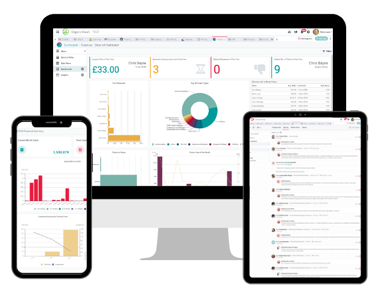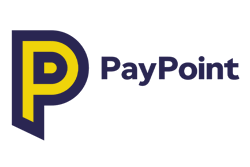5,000+ private and public sector clients rely on our payment solutions
Unleash the Power of Our Payment Processing Services
As a leading UK payment processing services provider, our automated, cloud-based business payment solution empowers you to turn the rising demands of today's markets into profitable opportunities.
Our goal is to empower you to offer people focused payments and to help better serve your customer’s customers.
Our feature-rich payment processing software solutions streamline payments, enhance customer satisfaction, and boost your bottom line. Simplify recurring payments, enable secure online transactions, empower software with embedded payments, embrace open banking, facilitate phone payments, ensure smooth face-to-face transactions, and deliver a consistent omnichannel experience.
Explore our diverse range of products today and find the perfect solution for your business.
Every payment made easy
As the experts, we’re on hand to help you manage your payments across our range of hassle-free solutions.
Direct Debit
Simplify recurring payments with our reliable and flexible direct debit solutions. Automate billing processes and enjoy hassle-free collections, ensuring a steady cash flow.
SEPA Direct Debit: Streamline European payments
Simplify cross-border transactions with our SEPA Direct Debit solution. Automate recurring payments, enhance cash flow, and reduce admin overhead. Offer customers a convenient, reliable payment method across 36 SEPA countries for increased loyalty.
Online Payments
Seamlessly integrate our online payments solution into your e-commerce platform. Offer your customers a secure and convenient way to make purchases, increasing conversion rates and customer loyalty.
On-Demand Pay
Enable your customers to make payments on their own terms with our on-demand payments solution. Whether it's for services, subscriptions, or purchases, our platform ensures a smooth and instant payment experience.

Multi-channel payments
Deliver a consistent payment experience across multiple channels with our omnichannel payments solution. Seamlessly integrate online, in-store, and mobile payments, providing your customers with flexibility and convenience.

Open Banking Payments
Embrace the future of banking with our open banking payments solution. Harness the power of APIs to securely connect with your customers' bank accounts, enabling fast and secure transactions.

Phone Payments
Embrace the future of banking with our open banking payments solution. Harness the power of APIs to securely connect with your customers' bank accounts, enabling fast and secure transactions.

Face to Face Payments
Simplify in-person transactions with our face-to-face payments solution. Whether it's through a traditional point-of-sale system or a mobile device, our platform ensures secure and efficient payment processing.
Direct Credit
Take full control and make your outgoing payment transfers accurately and efficiently, with one of the most secure and trusted payment methods.
m+
transactions / year
+
customers
+
years experience
What are the key benefits of payment processing services?
Payment processing solutions to improve cashflow
Our payment platform brings greater simplicity to businesses and organisations, reduces the need for time-consuming admin whilst giving you the confidence that you will get paid on time.

Payment processing services for all sized businesses
Whether you're a business, not for profit or membership organisation, we can cut hours of chasing payments so you can get paid quicker and with better accuracy.

Take your payment processes to the next level and unlock new opportunities for growth
There have been a lot of efficiency benefits. On the old system, Direct Debits had to be entered manually, but now with the PaySuite integration, it is automatically entered.
Unlock Your Revenue Potential and Safeguard Your Payments
With our revenue maximisation tools and solutions, you can optimise your income management, enhance payment security, mitigate fraud and risk, and ensure robust identification and verification. Our goal is to empower your business to maximize revenue and thrive in the payments industry.

Income Management
Our software enables you to maximise your revenue by accelerating your cash flow. With advanced tools and features, you can ensure timely and efficient payment processing, reducing payment delays and improving your overall financial performance.

Fraud and Risk Management
Our software includes powerful fraud and risk management capabilities. We provide comprehensive solutions to help you identify and mitigate potential risks, detect fraudulent activities, and protect your business from financial losses.

Identification and Verification Solutions
We offer advanced identification and verification solutions to ensure the authenticity of your customers. Our software enables you to verify customer identities, validate their information, and comply with regulatory requirements. By implementing our solutions, you can enhance trust, minimize risk, and streamline your onboarding processes.
Give your organisation the stability and freedom it needs to drive higher levels of growth by seamlessly automating your payment processes
Public Sector and Not For Profit Payment Solutions
Industries we serve in the Public Sector.
Private Sector Payment Solutions
Industries we serve in the Private Sector
Frequently Asked Questions
What is a payments service provider?
At Access PaySuite, we know the payments industry can be full of technical terminology and acronyms, so one of our aims is to help customers decode some of that jargon.
A payment service provider is a third-party company that allows merchants to accept credit and debit card payments, Direct Debit payments, bank transfers, and more.
Payments service providers (PSP) or merchant services providers, connect payments between businesses and customers, ensuring transactions are made safely and securely from start to finish.
They also provide merchant accounts, which is an account that receives the processed payments from debit and credit card purchases, and a payment gateway, which enables businesses to take payments online.
How do payment service providers work?
They work with payment processors or acquiring banks, to ensure money is transferred from your customer’s account to your own, safely and securely.
Probably the easiest way to explain the process is to demonstrate how a transaction works and where a payment service provider comes in.
- A customer makes a purchase using their card, a transaction request is sent to the payment gateway.
- This information is verified by the payment service provider and checks there are enough funds in the account to make the payment.
- Once this is all confirmed, the PSP transfers funds from the customer’s bank to the merchant account you have associated with your business.
- The payment service provider then notifies you and the customer that the payment has been completed.
- If a transaction is declined, due to invalid card details, the PSP will stop the transaction and a notification will be sent to both you and your customer.
What is a payment processor?
Businesses use payment processors to accept card payments. They usually sit between the bank and the merchant and look after the transfer of card information from the payment networks, for example, Visa and Mastercard, to your bank and the customer’s bank.
In essence, you need a payment processor if you want to accept debit or credit card payments. Payment processors charge different fees, so it’s important you choose a company that works for your business.
How does payment processing work?
There are several different factors or systems involved in online payment processing. Our simple explanation will help illustrate how it works;
- Once a customer has made a purchase via credit or debit card, this information is transferred to the payment gateway.
- The payment gateways transfer the information to the payment processor.
- The payment processor transfers the details to the card payment network and confirms the credit card details.
- If the verification is successful, the card network communicates with the customer’s issuing bank to release the funds. Once checks are made to ensure there are enough funds and the transaction isn’t fraudulent, the issuing bank will confirm to the card network that the transaction is approved.
- This information is received by the payment processor, who then requests the transfer of funds from the customer’s bank to the merchant account.
What are b2b payment systems?
B2b payments are payments made between businesses, such as invoices. Whilst the pandemic has accelerated the digitization of payments within the business-to-consumer (b2c), b2b payment systems are still filled with inefficiencies, manual reconciliations, or legacy systems with limited capabilities.
Currently, in the UK, over half of all b2b payments are still made by bank transfer which is not always suitable for a lower value, frequent payments-especially if you’re looking to scale your business quickly.
If you want to talk through what payment solution would suit your business, get in touch today.
What is a Bacs payment?
A Bacs payment is direct payments are made between banks specifically in the UK. Bacs is owned and operated by Pay.UK and is the cheapest way to make business payments. It’s easy to set up, and because it’s supported by all payroll software, it is the most common business payment method for paying employees.
There are two main Bacs payments, Direct Debit and Direct Credit. Direct Debit is where money is taken from your bank account, such as council tax, utility bills, mobile phone bills etc.
Bacs Direct Credit is the opposite and where funds are deposited into your bank account. Examples could be salary payments, pensions, refunds and more.
How long does it take Bacs payments to clear?
Bacs payments aren’t instant, it takes 3 business days for a Bacs payment to clear, but they’re still the main bank payment method used by businesses.
The process starts from when a payment is initiated, so when the payment file is submitted to the Bacs system, provided it’s before a specific time. The payment is processed by the bank on the second day and on the third day, the recipient will receive it in their account.
Because Bacs payments are only processed on business days, it might take longer than 3 days to clear if there’s a bank holiday, or if you submit the payment on a Friday, or outside regular hours.








